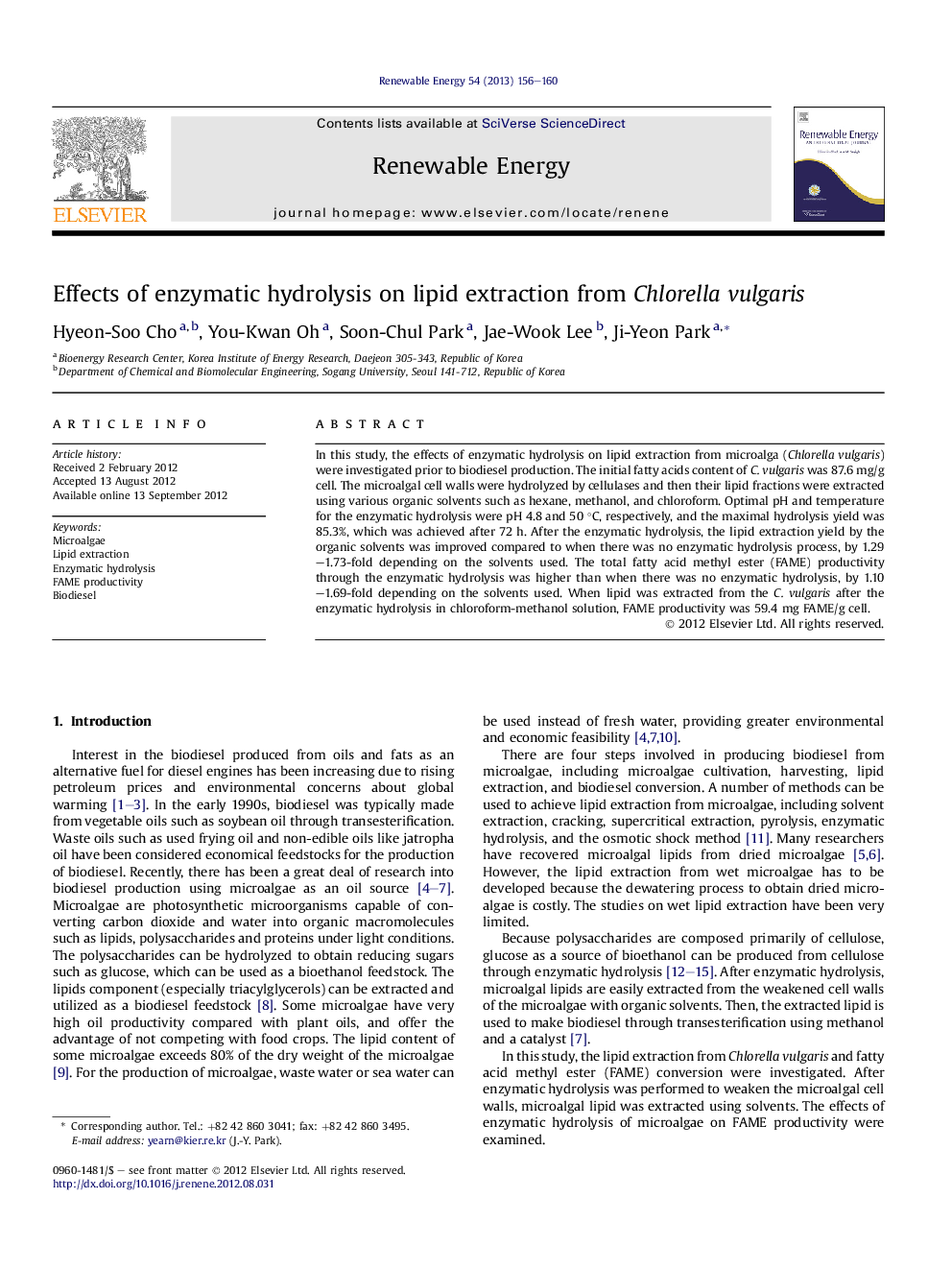| Article ID | Journal | Published Year | Pages | File Type |
|---|---|---|---|---|
| 300680 | Renewable Energy | 2013 | 5 Pages |
In this study, the effects of enzymatic hydrolysis on lipid extraction from microalga (Chlorella vulgaris) were investigated prior to biodiesel production. The initial fatty acids content of C. vulgaris was 87.6 mg/g cell. The microalgal cell walls were hydrolyzed by cellulases and then their lipid fractions were extracted using various organic solvents such as hexane, methanol, and chloroform. Optimal pH and temperature for the enzymatic hydrolysis were pH 4.8 and 50 °C, respectively, and the maximal hydrolysis yield was 85.3%, which was achieved after 72 h. After the enzymatic hydrolysis, the lipid extraction yield by the organic solvents was improved compared to when there was no enzymatic hydrolysis process, by 1.29–1.73-fold depending on the solvents used. The total fatty acid methyl ester (FAME) productivity through the enzymatic hydrolysis was higher than when there was no enzymatic hydrolysis, by 1.10–1.69-fold depending on the solvents used. When lipid was extracted from the C. vulgaris after the enzymatic hydrolysis in chloroform-methanol solution, FAME productivity was 59.4 mg FAME/g cell.
► Effects of enzymatic hydrolysis on lipid extraction from microalga were investigated. ► Using enzymatic hydrolysis, the efficiency of wet lipid extraction was enhanced. ► FAME productivity through the enzymatic hydrolysis was higher.
